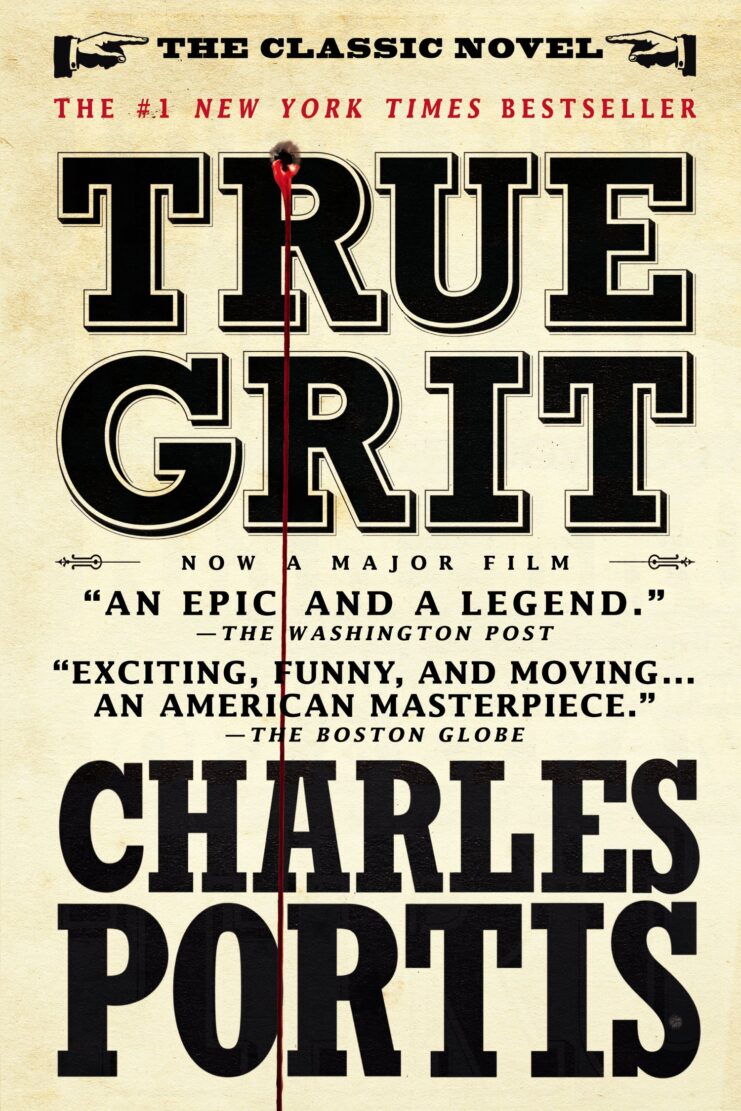True Grit
Tags: general-fiction, favorite-fiction,
Fourteen-year-old Mattie Ross sets out to avenge the murder of her father in 1880s Arkansas. She hires the hardened and hard-drinking US Marshal Rooster Cogburn to track the murderer, Tom Chaney, through Indian country and bring him to justice. Along the way, they pick up a Texas Ranger named LaBoeuf who is seeking Chaney for crimes committed in Texas.

Mattie is iron-willed, single-minded, guileless and pure in her intentions. She comes from a salt-of-the-earth Christian family, which puts her at odds with the jaded Cogburn who has spent his career hunting down men who have proven themselves immune to ordinary justice. Both characters are practical and unsentimental, though their temperaments have evolved from very different experiences.
Mattie’s unsentimental pragmatism is based in idealism. There is one right way to live, which the bible plainly spells out. Rooster’s unsentimental pragmatism came from having to make his way in a hard and unjust world where criminals like Ned Pepper will run all over whoever they please until someone bigger and stronger and meaner comes along to stop them.
As the trio–Mattie, Rooster, and LeBeouf–make their way on horseback through what is now Oklahoma, they learn that Tom Chaney has joined a band of train robbers led by Rooster’s nemesis, Lucky Ned Pepper. The gang has just robbed a train, provoking a posse of US Marshals to join the hunt a few days behind Rooster and his crew. This introduces time pressure. Mattie wants to reach Chaney first, so she can bring him to justice back in Fort Smith.
Now we have quite an interesting setup, with each of the three main characters on a personal quest with life-or-death stakes. The joy of this book is seeing the world through Mattie’s eyes. The girl is absolutely sure of herself, even when tested to the limit. She grew up on a farm and is not entirely out of her element in the lawless Indian territory.
She understands horses, nature, people, and describes them all in clear, unvarnished language. Her language, like her moral outlook, is uncorrupted by common usage. Her statements and descriptions are literal and concrete, not metaphorical. They refer directly to the physical world around her. On the few occasions when she does use jargon or current idioms, she puts quotes around the words so the reader will know she does not mean these words literally.
Mattie’s fixation on her mission and her extreme literal-mindedness would probably get her tagged today as autistic. She’s not. She’s just very sure of who she is and well-grounded in a literal, physical, concrete world, as reflected in her language.
The author, Charles Portis, is a master storyteller, both in the broad structure of the tale and in the host of minor details that ring true and bring the individual scenes to life. The story is well paced, with no wasted words, and the tension builds throughout, leading up to an unforgettable ending. This is justly considered an American classic. If you get a chance, check out the Coen Brothers' 2010 film version, which is quite true to the book.